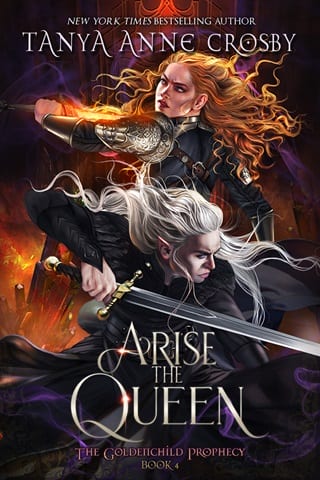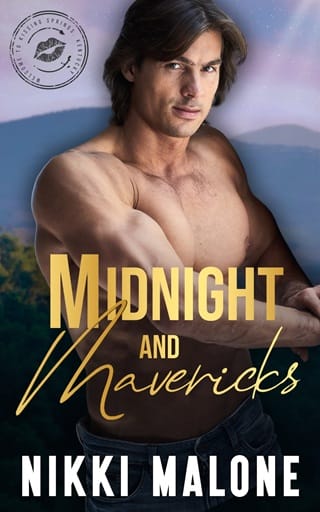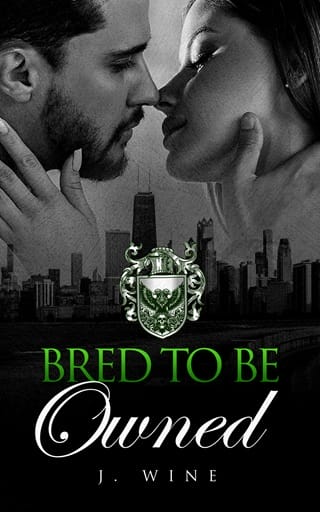Chapter 4
4
T he distant drip of water echoed throughout the grotto and the rustling of unseen creatures scurried along the shadows.
Silently, thoughtfully, following the Púca, she meandered through a network of dark, twisty tunnels that carved their way inexorably through the depths of the earth, the paths ancient and labyrinthine.
Along the cavern walls, roots from trees and plants above snaked down through cracks in the stone, grasping at the earth for moisture and nutrients. These roots all formed tangled webs, snaking across the path beneath her feet to create natural barriers and obstacles that must be navigated with care.
Blind, pale moles skittered across the rocks and roots, bats roosted in their upper chambers, their wings rustling softly amidst the darkness.
Occasionally, the glint of small, glowing eyes could be seen peering from some crevice, belonging to some creature that no doubt had evolved to thrive in this subterranean world.
The floor itself, scattered with loose rocks and patches of slick moss, forced Gwendolyn to consider every step. Meanwhile, the Púca seemed to have little trouble—even when stalactites and stalagmites of varying sizes jutted from the ceiling and floor, creating a jagged and forbidding landscape.
More surefooted than a roofer on a spar, he marched along, transforming as he pleased—one moment the surly cat- sidhe , another the three-headed beast, all the while leading Gwendolyn through an endless length of tunnels.
But the longer they traveled together, the more he altered his form, the easier it was for Gwendolyn to get a sense of his personalities…
As the three-headed beast, he sang, and his song, she realized, was a form of enchantment. It took some effort to focus on what all three of his heads were saying, but once she did, time itself was altered by the tapestry of his ballad.
She didn't like him as the cat- sidhe . In that form, he was grumpy and officious, speaking only to issue commands—this way, not that, step lightly, don't chew so loudly—the last given after Gwendolyn dared to steal a bite of Hob cake, only because she didn't wish to grow so famished that she might be tempted to stuff her gob. She couldn't help it if every sound was amplified in these caverns.
Alas, the flavor of the Hob cake was bittersweet—like the taste of Málik's lips, which Gwendolyn would evermore associate with the tang of betrayal.
In the end, she preferred to suffer a grumbling belly, and thus, even after the Púca altered his form into the little blue fellow—the form she liked best—she didn't bother to snatch another bite. Instead, she listened intently, tucking aside the more pertinent information for later.
As the wee bodach , the Púca was very much like a six-year-old child given too many tarts—full of sugar and chatty as the baker's wife. However, at least in this form, he was a willing font of information, and it was information she craved. Gwendolyn hung on his every word, and he told her far more than she ever knew to ask. Slowly, but surely, Gwendolyn began putting the tales she'd heard all together in context, and some things now made sense…
Near Mount Slemish was where they'd entered this Fae domain, and, evidently, this was near Málik's home. According to Esme, the alloy found beneath that mountain was the same that had forged Kingslayer. This Adamantine could strengthen all alloys, even those in the mortal realm. Esme claimed this was the source of Brutus' Loegrian Steel—but how? How had Brutus come upon this alloy?
The Púca had yet to address that question, but there was little he held back. As the wee blue man, he had so much to say about everything , including the tale of Manannán's exile.
Evidently, after the Fae's exile from the Realms of Men, the Sea God, Manannán, was banished for treason. Sent to an isle in the Minch, his subjects were the Blue Men—the storm kelpies he imbued with the power to create storms. Manannán taught them to swim with torsos lifted above the sea, so men might confuse them with porpoises. Anytime unwary vessels approached their domain, those kelpies shouted lines of poetry to the helmsman, challenging him to complete their verse. If the helmsman failed, the kelpies swarmed his vessel, capsizing it so that Manannán could seize all they owned. Gwendolyn supposed this resulted from his anger after his banishment. To mortals, he must appear to be some avenging god. But, according to Esme, he was an "old windbag," "an imbecile," a "selfish, old wanker." And even so, there must be some cause for Esme to have made it such a point to regale her with tales of Manannán…
It also seemed too much a coincidence that those trolls had mentioned him as well, especially after hearing how insistent they were upon seizing Gwendolyn and dragging her before Manannán.
So, then, what was she supposed to glean from the Púca's tale? What part had the Sea God to play in the mystery unfolding?
Something swam at the edge of Gwendolyn's consciousness—something on the verge of being forever lost, but no matter how hard she tried to retrieve it, she could not. Meanwhile, the Púca made it a point to explain how, after Manannán escorted the Aos Sidhe into their exile to seal the bargain with the sons of Míl, the Fae king banished him, barring him from returning to the Fae Realm.
"But they did not banish his kin," said the Púca. "Nor could they when half the King's Court shares the Sea God's blood."
"Málik, too?"
The Púca frowned at her, but Gwendolyn believed it was a perfectly logical question. And truly, were Málik kin to Manannán, it would be no surprise. According to every tale she had ever been told, those Fae were all somehow related—one part Fomorian, one-part Danaan, and mayhap all kin to the Sons of Míl.
She, too, was said to be part Fomorian, but she was indubitably a descendent of the Sons of Míl.
In the beginning, Gwendolyn had been so confused how Málik could be Esme's brother and also her betrothed. Now, she better understood: Málik was the King's foster son, and he and Esme were siblings in name only, simply because they'd been raised in the same house. And from everything Gwendolyn had been told, the Tuatha'an houses were all connected.
As for Málik… until he'd revealed it to her, she had never once guessed at his royal lineage. Was that why Esme's father craved a union for them? To see his blood preserve the throne? Although if that were the case—if his right to rule was not absolute—why couldn't Málik simply challenge him to take his rightful place? Because the Fae king knew his true name.
The answer came to her simply.
Of course, to know a Fae's true name was to hold him enthralled. Had he compelled Málik to serve him? Certes, if he could compel him to assassinate Gwendolyn, he could command anything.
Why then had he not compelled Málik to wed his daughter?
Because Esme had refused—this was the most obvious answer.
Gwendolyn knew Esme was her father's heir, and as such, stood to gain the entirety of her father's kingdom. However, for some reason, she did not support him— why?
Gwendolyn tried to remember what more Esme had revealed that night in the Druid village… Only that her father had seized his crown without right, and that his reign had been troublesome. She had openly confessed to being at cross purposes with him, and claimed to be harboring a secret.
What secret?
He will suspect the very thing I've kept from him all these years.
Your rebellion?
Something else.
Something I dare not speak aloud…
Well, whatever that secret, Esme clearly feared its revelation far more than she feared her father discovering her part in a growing rebellion—a rebellion that was perhaps meant to end in a coup?
One thing was certain: Whatever Esme's secret, it was not something Gwendolyn would learn from this Púca—not directly. To be certain, she asked, but for this, he answered with silence. So for now, she would allow him to speak freely, taking what she could from his unvarnished gossip, and she was quite certain there was more to be gleaned from this random conversation —something Gwendolyn could not presently ascertain, but something…
"Art listening?" the Púca snapped.
"Oh, yes!" Gwendolyn reassured, although, in truth, her thoughts had wandered.
"Whence we entered, this is where the Féth remains weakest," the Púca explained, turning now to assess her with a dark-eyed glance.
"Yes," she said. "I remember this, and I am told that is the only remaining portal betwixt our realms?"
The Púca frowned. "Yes, and no."
"What do you mean, yes and no?"
He appeared to ignore that question, introducing another. "Merely because there is one portal does not mean it leads to one location. The manner of your entry determines where you land."
Gwendolyn's attention was piqued. "So, then, as with the merest inflection of one's tone, if you enter wrongly, you may be lost?"
"Never to return, never to be found," he said, and his voice was filled with what sounded like approval.
But, of course.
Why wouldn't the manner of one's entry into a portal be the same as the twisting of words or the tone of one's voice?
Lir had warned Gwendolyn rather vehemently that the Fae were never to be trusted. Every word that came out of their mouths should be subject to scrutiny. Why then, as demigods, couldn't they also know how to twist the aether to their bidding? Hadn't Gwendolyn already experienced this when Málik turned her into a tree?
Or really, he did not. He simply made her feel like a tree, and somehow, despite not being a tree, he'd beguiled Locrinus and his men, so they saw her as a tree as well.
Gwendolyn didn't understand "magic," but the Fae were masters of deception. And now, looking back over every conversation she'd ever had with Esme and Málik, she found herself searching for hidden meanings behind every spoken word. But how exhausting, how maddening.
Realizing that her thoughts had drifted once more, she tried to find her place in the current conversation. "I was wondering about those trolls?" she said. "Do they answer to your Fae king, or to Manannán?"
Apparently, their blossoming friendship wasn't immune to the Púca's irritation. He cast her a narrow-eyed glance over his shoulder. And this time, it was Gwendolyn's turn to explain. "I heard them speak of Manannán."
"The sons of Míl dealt with us in bad faith, but the Old King admired their mettle enough to award them… something.…"
Gwendolyn's brows collided. How did that answer her question? "Something?"
"A treasure."
Blood and bones. His explanations were hurting Gwendolyn's brain. She must presume this deal in "bad faith" he spoke of was the Fae's bargain with the sons of Míl. This was something she knew about from Demelza and through her studies.
Before the Ending Battle, it was agreed the victors of the Last War would choose the spoils. However, when the time came to choose dominions, the sons of Míl tricked the Fae, using their own twist of words. Rather than choose another territory, they chose the half of ériu that lay aboveground, forcing the Tuatha Dé Danann to choose the Kingdom Below. However, since Gwendolyn already knew this story, she centered her questions on the things she did not know.
"By the Old King, I presume you mean Málik's father?"
"The Dark One," said the Púca with a nod. "When the old king learned the mortal king's ruse, he was amused."
Gwendolyn furrowed her brow. "But… I don't understand… if he was so amused by their ruse, and he was king, why then was Manannán banished from the Fae realm?"
"You mistake me. It was not the old king who banished Manannán. It was the New King. He used the Old King's… oversight… to wrest his throne, and then he banished Manannán."
"What oversight?"
"Of course—the loss of a sacred treasure," the Púca explained. "One that was never intended to be bestowed upon mortals."
"Claímh Solais?"
The Púca nodded. "But there was something else Manannán did to anger the new king as well…"
"And what was that?"
"You above all should know," the Púca said, and that was as much as he appeared willing to reveal.
Remember, Gwendolyn. Remember!
"So, for this offense, your new king wrested the throne, taking advantage of the old king's lapse in judgment, and then banished Manannán, but not his kin?"
"Precisely," said the Púca. And then he continued to explain, "To the contrary, he demanded a favored daughter remain as a ward of his court."
That was interesting, Gwendolyn thought. "And the old king was also banished? To the Minch, I suppose—with Manannán?"
"No, Silly Human. It was only Manannán who was banished."
At least they were getting somewhere, Gwendolyn mused. She was no longer "Stupid Girl," but "Silly Human." She might have laughed, but she wasn't prepared for this conversation to be over. Already, she had learned so much.
"The Old King was not banished. He removed himself—to the Forbidden Lands , it was first presumed. But there has been no sign of him there, and the Dark Prince has given up his search—or so we thought."
"The Dark Prince… Málik?"
"Yes," confirmed the Púca, and there appeared to be a nearly indistinguishable note of encouragement in his tone, so Gwendolyn continued.
"Bear with me now," she begged. "I am only trying to understand. So this ‘old' king demanded that Manannán's daughter be made a ward of his court."
"Yes."
"So he could use her to his advantage?"
"Yes."
"Against Manannán?"
"Perhaps… but no."
Gwendolyn frowned, because the Púca's answers never failed to confound her. For the moment, she left off with more questions, mulling over the timing of Manannán's exile, because Málik, too, had become a ward of this new king around the same time. Therefore, he, too, must have known Manannán's daughter—as would Esme, if, in truth, they'd all been reared together in her father's court.
It felt to Gwendolyn as though this information had some significance, but she still couldn't determine what. The answers floated about like forgotten wraiths, eager to be seen, but skirting away from her even as she dared to reach for them.
 Fullepub
Fullepub 



